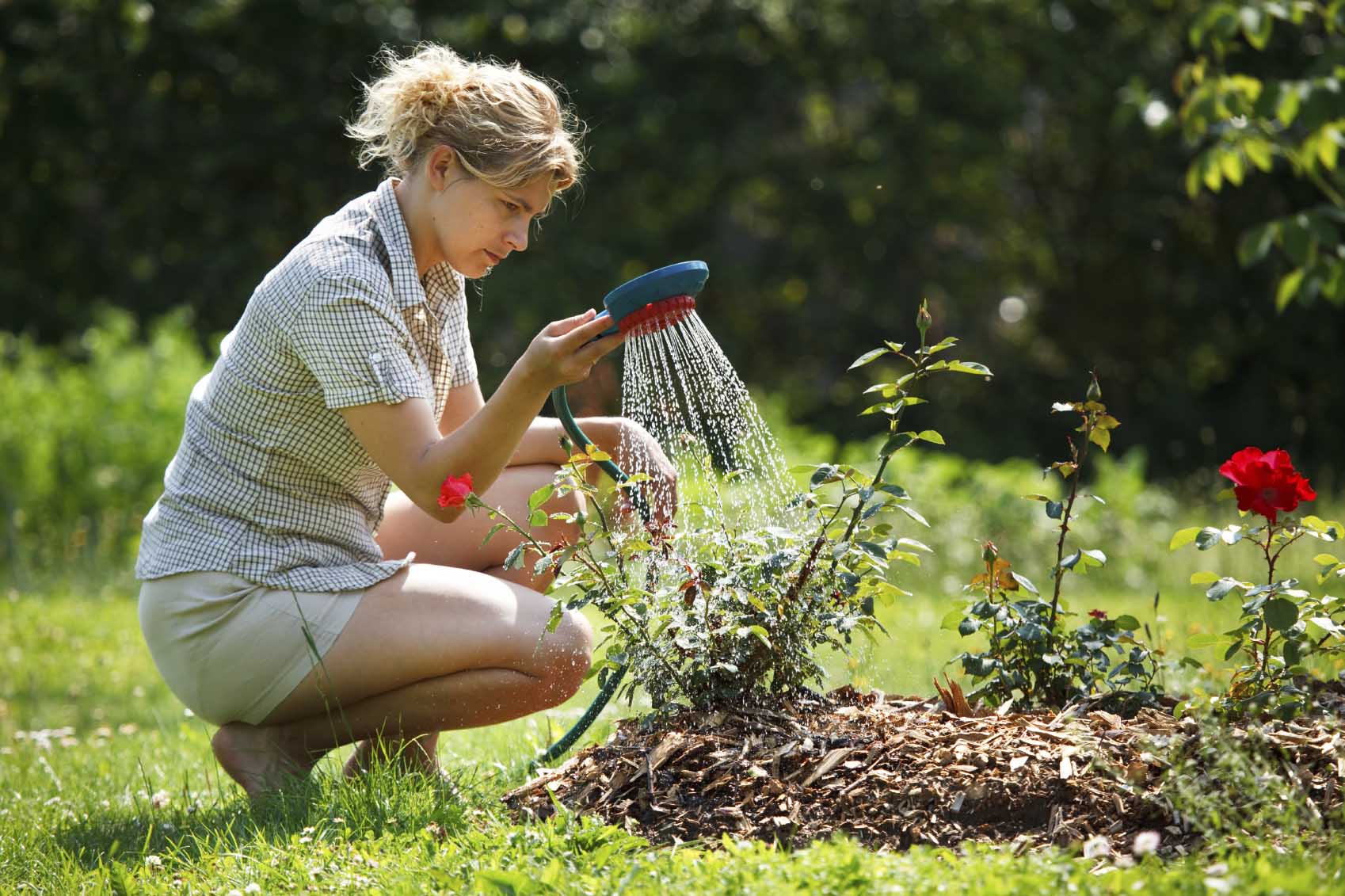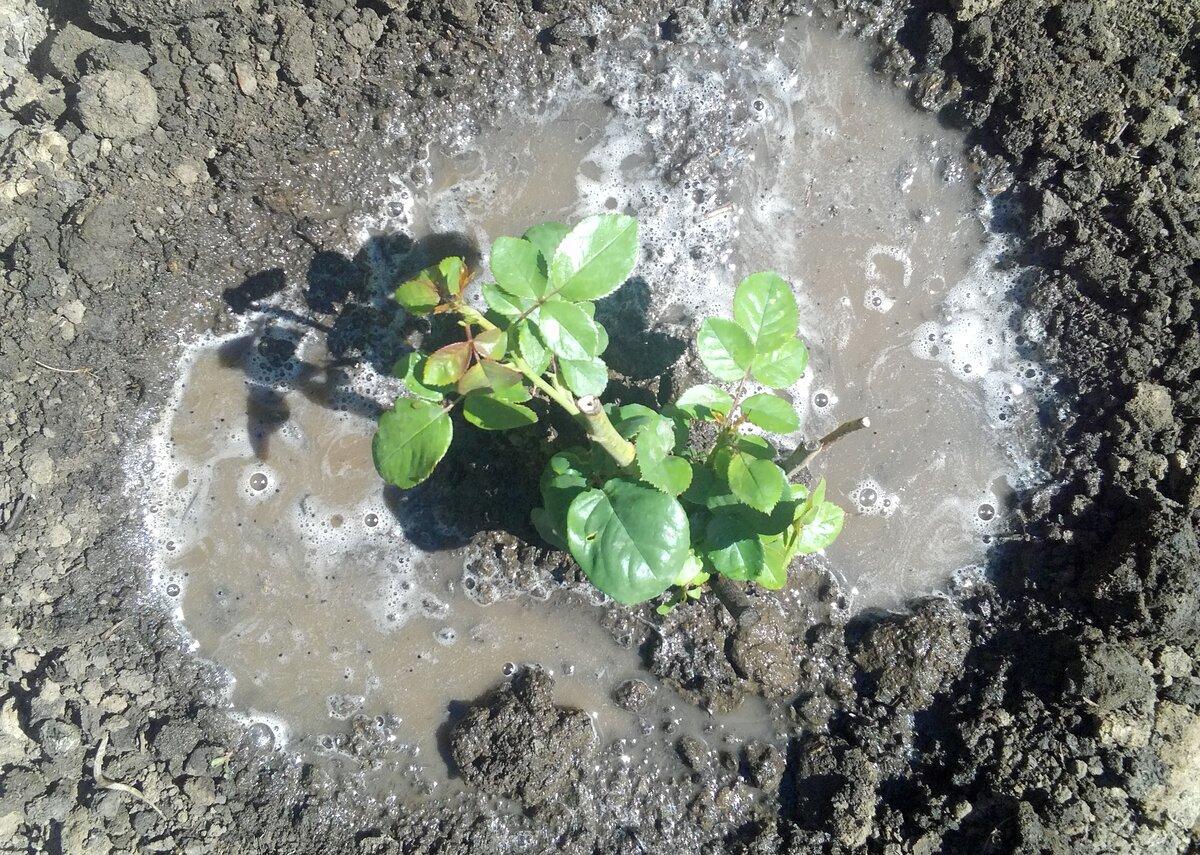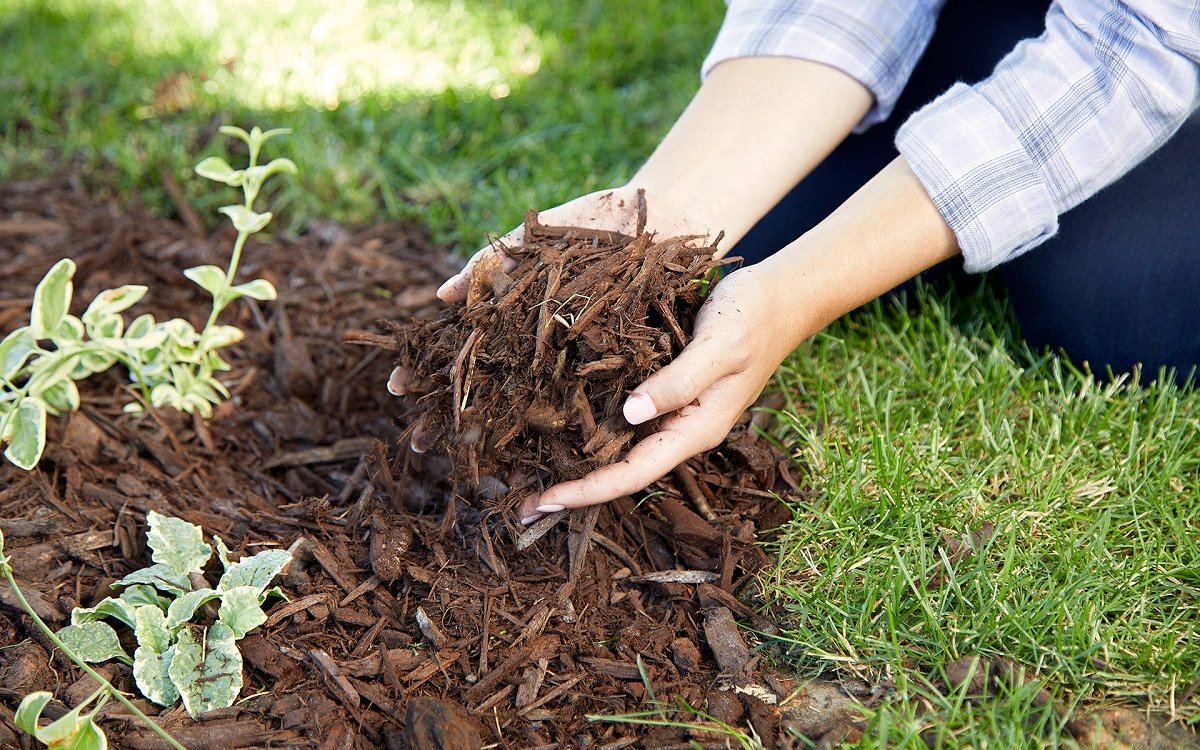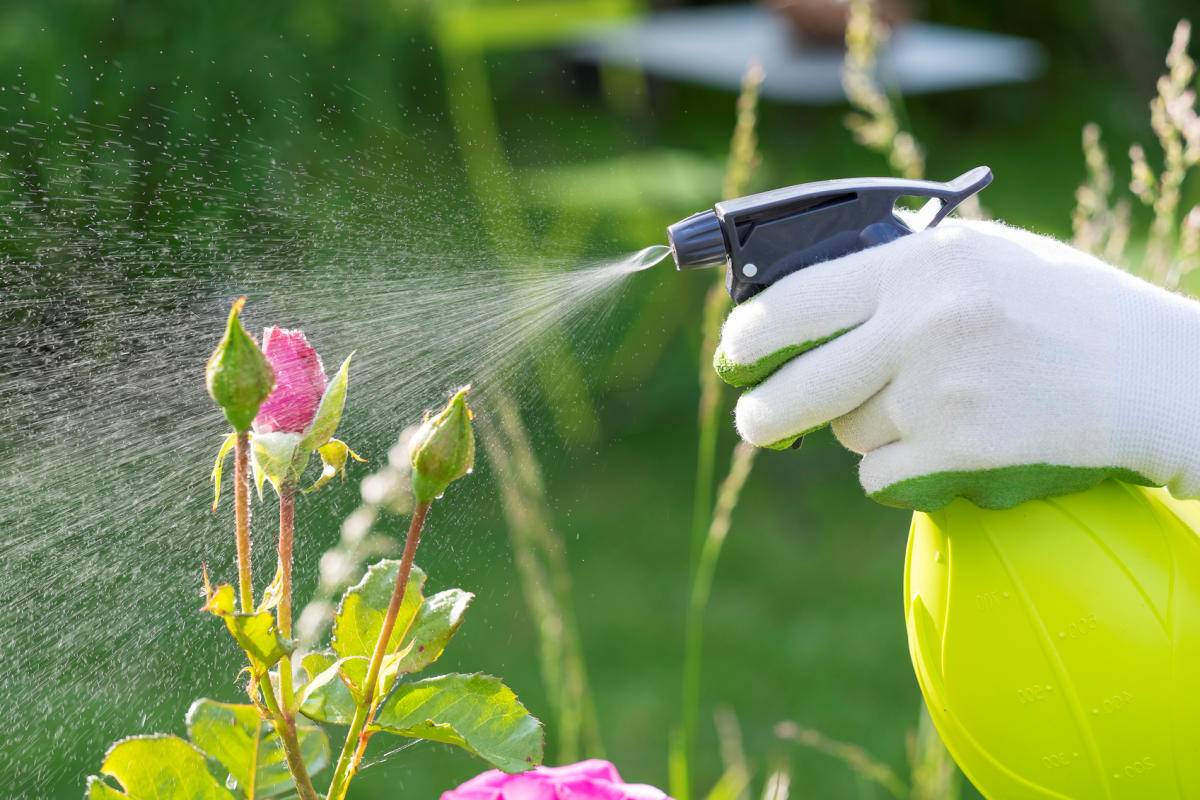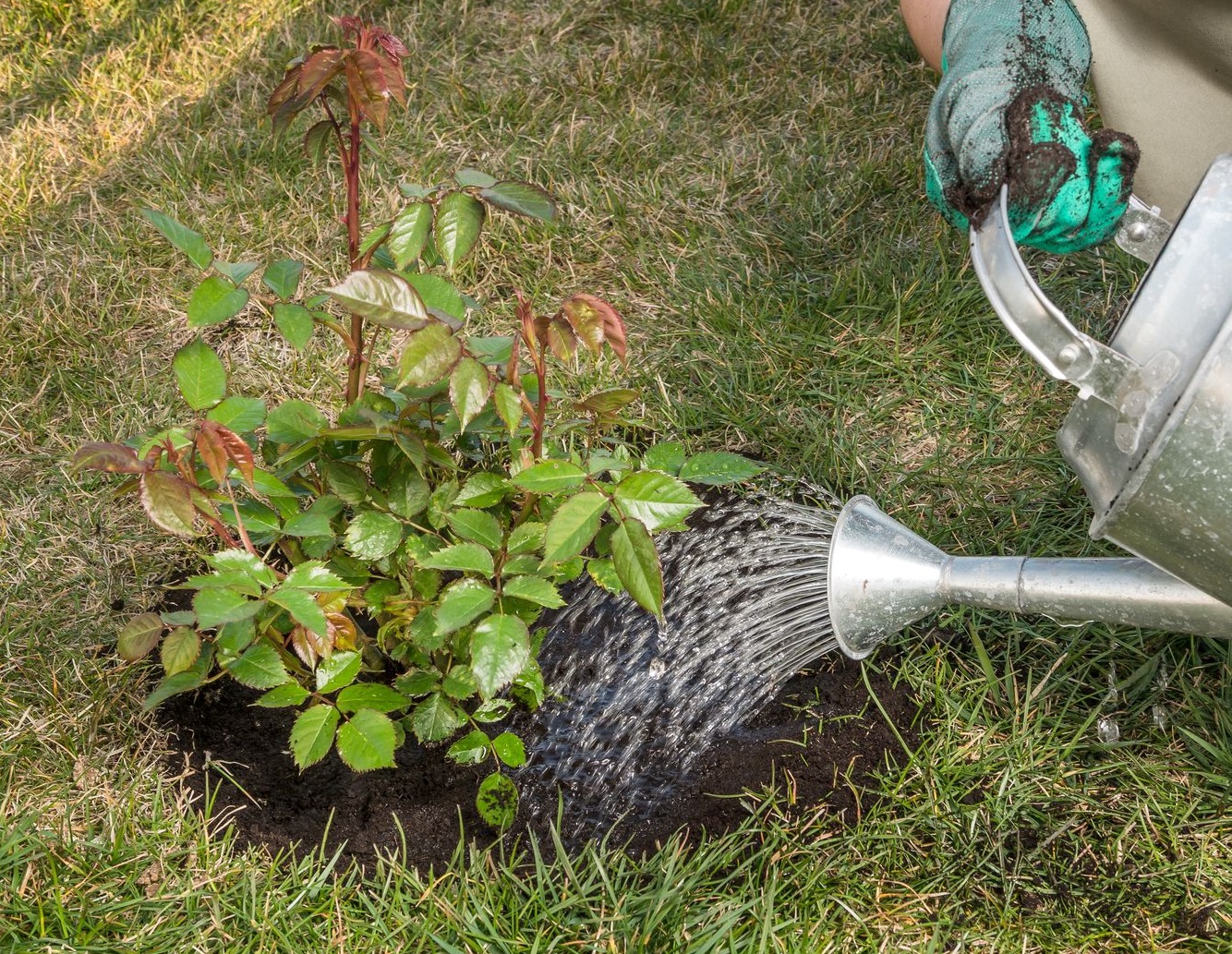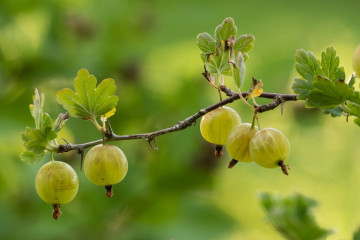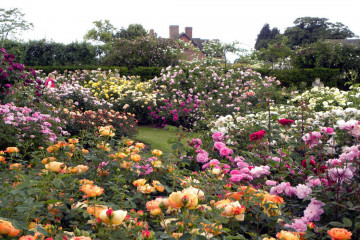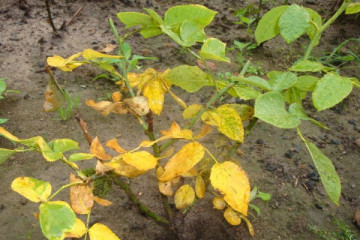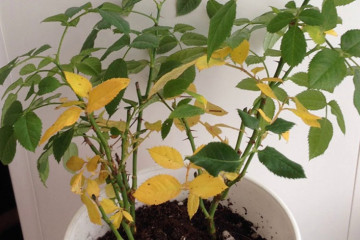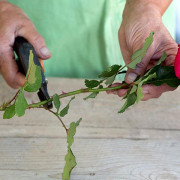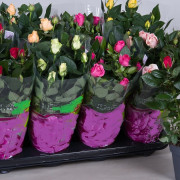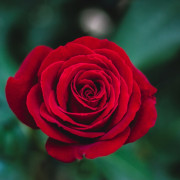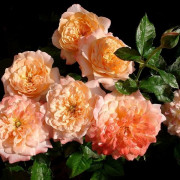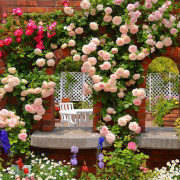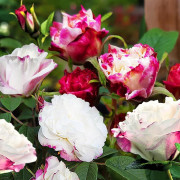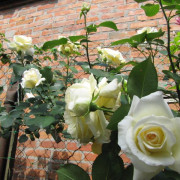How often to water roses - in summer outdoors, the optimal time
Content:
Rose is one of the most beautiful flowers that can decorate any flower bed or garden. But in order for her to always please the eye of the owner, it is necessary to provide her with really high-quality care - without this she will quickly wither and may even die. The most important requirement is proper watering. It is necessary to figure out how often to water roses in the open field and how to do it correctly.
How often to water roses
It is difficult to give an unequivocal answer here - it depends on many factors. First of all - from the regularity of the rains. If they take place at least once a week, then you can completely refuse additional watering. You should also take into account the weather - on hot days with a strong wind, you need to water your favorite garden more often than on cool, calm ones.
We must not forget about the peculiarities of the soil - on heavy soils (clay, loamy), water stagnates longer than on light (sandy). This criterion should also be considered.
Watering by seasons
In many ways, the intensity of watering depends on the season. On hot summer days, the bushes evaporate more moisture than on cool spring or autumn days. In spring, the plant develops more actively than in autumn, but in autumn it prepares for wintering. This means that the rules of watering are changing. Therefore, it will be helpful to consider each season separately to get the most complete picture.
In the spring
In the spring, the buds swell, juice runs along the awakened branches - the plant is preparing to wake up and soon please the owners with gorgeous flowers. With a lack of moisture, it is highly likely that the buds will turn out to be small, and their number will be minimal.
Therefore, it is advisable to start watering from mid-April, when the ground is completely warmed up and thawed. Too often it is not necessary to do this - one watering session every 7-10 days is quite enough.
In summer
Summer is the best time of the year when the rose is covered with gorgeous flowers, delighting observers. It will bloom only if ideal conditions are created, including watering.
The intensity of irrigation is influenced by: weather, soil type, regularity of natural precipitation. But even if it rains regularly, it is important to monitor the condition of the soil. In some cases, light summer precipitation moistens the soil only from above. The lower part, where the root system is located, remains dry.
Overfilling is more dangerous than underfilling. The latter is easy to notice - the leaves on the bushes begin to fade, which means that measures should be taken in a timely manner. With an excess of moisture, the root system begins to rot. And sometimes even an experienced florist notices something amiss too late - at best, the bush has to be replanted in order to save it from death.
In general, watering roses in summer should be the most intense - the ground under the bushes must be moistened so that the plant feels comfortable.
Fall
In autumn, most roses stop flowering (the only exceptions are some hybrid and tea varieties).But this does not mean that you can forget about watering. Quite the opposite, the plant is actively preparing for winter, and the success of the wintering of the culture depends on how the owner takes care of it.
About a couple of weeks before the first frost (it depends on the specific region), it is necessary to water the bushes abundantly - under each 10-15 liters of water, and under climbing ones - up to 40 liters. This will allow the plants to absorb moisture. Some also add phosphorus fertilizers to strengthen the roots and make it easier to overwinter.
Watering for the winter
Shortly before the onset of frost, the bushes need to be watered abundantly. Thanks to this, the roots will gain enough moisture and nutrients. Then you no longer need to water the bushes. A rose will winter better if the soil under it is relatively dry. And the likelihood of new shoots appearing due to this will significantly decrease.
General rules for watering roses
Only with proper care will all plantings feel great - even seemingly insignificant mistakes can lead to the appearance of diseases or simply a general weakening of the bushes. To prevent this, you should adhere to the rules.
Creating an earthen roller around the plant
First of all, it is necessary to create a small shaft of earth around the trunk of the bush with a depression in the center. This is to make watering easier. So the water will not spread throughout the garden, but will always remain in the right place, actively absorbing and easily reaching the root system, feeding the bush.
It is not necessary to make a deepening too large - a circle with a radius of 25-30 cm around the trunk is enough. It is recommended to actively mulch this area - especially if you have to work in an arid, hot climate. On the one hand, mulch reduces moisture loss, especially in dry winds, and on the other hand, by gradually rotting, it serves as an excellent plant nutrition.
As mulch, you can use dry chopped grass, compost, dry manure, spruce needles. But sawdust is not suitable - they change the acidity of the soil, which can harm the plant. Due to their light color, sawdust reflects the sun's rays, which can cause sunburn on the leaves.
Water quality
Experts believe that rainwater is the best choice for irrigation. To do this, it is recommended to put a barrel in which water would be collected, falling on the roof of a house, garage or shed during rain. This solution has many advantages - it is soft water that does not increase the salinity of the soil. In addition, it gets it completely free - you do not need to pay by the meter if the house is connected to the water supply network.
If this is not possible, then you can water it with tap water or well water. But this water needs to be defended. The well fluid will be too cold, and it may well chill the plant, which will lead to its illness or even death. And tap water often contains a lot of bleach. By holding it for several hours, you can get rid of the excess of a dangerous substance that can harm plants. This happens especially often when growing at home in a pot - due to the small volume of land, the bush is most easily poisoned.
Soil processing after watering
This is especially important on hot summer days. The earth is abundantly saturated with water. Moisture penetrates to a considerable depth and nourishes the rose bushes. However, this creates a crust on top. It prevents air from entering the ground. And the roots without it begin to ache, suffocate, which affects the general condition of the plants.
When a crust forms, it is advisable to loosen the soil not to a great depth. To remove the crust and at the same time not harm the root system, 3-5 cm is enough. With this care, the plant feels great, actively blooms and pleases the owners with gorgeous bouquets.
Optimal time of day for watering
Do not forget about choosing the right time for watering. Experts believe that the best option is morning (before 9 o'clock) or evening (after 7 o'clock). You can also water at night, but this is completely inconvenient because of the darkness.
Why is it not recommended to water during the day? Everything is simple here - if water drops fall on the leaves, this can cause burns on a sunny day. The sun's rays, passing through the drops, are refracted and concentrated at one point. This is where the burn will appear. Several such small burns will not do much harm, but if there are a lot of them, then the plant's immunity will be undermined, the appearance will worsen, and pests may well attack the bush.
Watering with a watering can or a hose
Another important question is what is better to water: with a hose or a watering can. The use of a watering can is considered preferable. In this case, moisture is easily distributed over the entire area of the soil under the bush, without eroding it. But you need to use a special attachment.
In recent years, the horticultural market has offered a variety of hose attachments. When using them, rose bushes can be watered with a hose. The main thing is that the pressure is not too strong. Otherwise, there is a high probability that a stream of water will wash out the soil, exposing the root system, which will suffer under the rays of the sun. Or the jet will simply break the young branches, tear the leaves. Therefore, be very careful when using the hose.
However, such a solution has a plus - it is convenient to water the foliage from a hose, which reduces the likelihood of a plant being damaged by a spider mite. And this dangerous pest usually appears at low humidity, entangling the leaves with cobwebs and drawing sap from them, which leads to the death of the culture.
Watering rules before and after fertilizing
An experienced gardener applies top dressing to the soil during the warm season - nitrogen in the spring, phosphorus in the fall and potash throughout most of the summer, in order to provide the plant with all the substances necessary for active growth, flowering and successful wintering.
If a fertilizer diluted in water is used, then it is not recommended to water dry soil with it - the efficiency will significantly decrease. First, you need to moisten the soil a little, and after that spill it with water and diluted dressings.
If the gardener prefers dry dressing (special long-acting granules are very popular today), then immediately after they are introduced into the soil, it is advisable to water the roses abundantly. The bushes will draw moisture from the ground through the root system, absorbing nutrients along with water, ensuring rapid growth.
Of course, caring for roses is a rather hard and painstaking work. But the gorgeous flowers that the plant will thank the owner with are certainly worth the effort and time that was spent.
